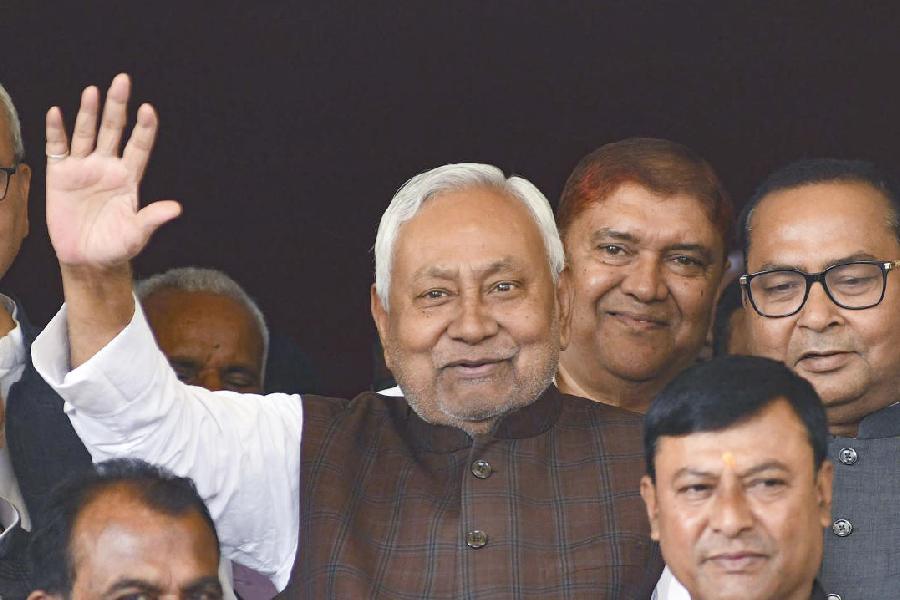When Samantha Harvey’s sci-fi-cum-philosophical novel Orbital won the Booker Prize last year, it marked a number of firsts. The first book set in space to ever receive this prestigious award, Orbital, which is also, coincidentally, the first novel written by a woman to win the Booker since 2019, has defied expectations in more ways than one. The novel, according to rave reviews, is an amalgamation of many things, but primarily it is a meditation on time, memory, and human connection, set against the vast backdrop of the cosmos.
At just 136 pages, Orbital is the second-shortest novel to win the Booker Prize. However, quantity matters not in the face of quality, and Harvey, since this feat, has found herself at the centre of literary discourse, with critics and readers alike dissecting Orbital’s ‘poetic prose’, philosophical questions, and quiet yet profound emotional depth. The novel’s success has also spurred renewed interest in speculative fiction, proving that works set beyond our planet can be just as introspective, urgent, and deeply human as any story set within its bounds.
Extraordinary book
The Rising Asia Literary Circle’s meeting to discuss this book was an extension of that fact, held at The Bhawanipur House near Jatin Das Park, in which the club got together to discuss the themes, tones and turmoils of the novel. Kicking off the discussion, professor and t2 columnist Julie Banerjee Mehta highlighted that the book begins, both literally and figuratively, with the need for space.
“The novel deals with the theme of planetary justice. What we take for granted on planet Earth, and how only when we have left the safe confines of our home and are stranded in a tiny space station does the question pop up: What if we can’t get back to our loved ones? When I began to read this book about this group of people in a tiny little capsule, I could not help but think of how the author was actually perhaps questioning how in this space of the capsule the astronauts were going to keep away from conflict. She’s really created a mini United Nations within the confined space of this setting, and by the end of the book, the message I took away was, though the characters are in this space away from planet Earth, they are constantly concerned about planet Earth. It is an extraordinary book on many, many levels,” Julie said in her introductory remarks.
Taking the conversation further, Anasuya Pal stressed how Harvey blends scientific precision with deep philosophy, exploring the paradoxes of space travel, Earth’s fragile interconnectedness, and the haunting question of whether progress comes at too great a cost.
“The author has not only conducted intense research and presented the scientific aspect of existence itself in her book, she’s also presented the very philosophical, introspective journey that each cosmonaut goes through. The entirety of the Earth has been described in very compressed mosaics and you can experience the intensity of experiencing 19 sunsets and sunrises in a day. And we, the reader, evolve with each sunrise and sunset, too. What was more gutting was the entire series of paradoxes Harvey has presented: The Earth being centrestage and yet it being so far away, and it being your mother and your home and that there is no difference between a mother and the Earth.
“What also touches you is that the story brings home the interconnectedness of all life, and how the astronauts were inexplicably united in spite of their political differences. To be in this position is necessary to truly value and evaluate the Earth, more than they ever did when they were on the Earth. It is a book that has explored and brought in front of us the dependence we have on each other and it is crucial and imperative that we value that and look beyond the geographical separations that our people like to promote with wars,” Anasuya said, in a nod to political differences that have been ripping apart the fabric of civilisation since time immemorial.
A universal truth
Anju Munshi further spoke on the book being a testament to the philosophy of ‘being and recording’.
“The book offers an insight into human existence, and one needs to look within oneself to understand what is going on in this world and beyond in the universe. There is a relationship, a merging, between the Earth and space which has distinctly been brought out by the author. Before you know it, she’s already made a point by saying that it is a universal truth that one cannot do without the other. So the author personalises the vastness and the mystery of the universe to an extent that the reader is carried along with it and starts believing in the unity of one with the other. It’s like a holy alliance,” Anju said, adding that even in the midst of all the disparity that exists between the protagonists of the book, the fact that they are all human and alive binds them together by a common thread.
“On reading, I only realised again that Earth will always be home: It is a reassurance, a shoulder that you lean on in times of trouble and despair, despite there being distance. These astronauts had a very strict regimen yet there is a constant mention of how they look out of the window of the space craft and look at the tiny dot, which is Earth, which is home for them. And they remember their family, who remain on the planet. The story swings between doom and mortality and essentially looks at Earth as a support system which we have begun to take for granted,” she remarked, before moving on to highlight the environmental concerns the book talks about that we on Earth need to pay serious heed to.
Chaitali Maitra was of the opinion that Orbital is a “mindblowing” book. “There are two elements to be kept in mind,” she said, “And those are the beauty of space and speculative sci-fi. We overlook how scientific Harvey is, but there is no reason to do so. We may consider the mathematics of it — 24 hours, six astronauts from six countries, four men, two women, each chapter constitutes 16 orbits, 24 hours, 17,000 miles an hour. It is part of the narrative that is weighed against much more serious concerns of the Earth. The value of the Earth which we don’t understand until we go away from it, similar to a mother: You understand the importance of the mother when you are distanced from that mother. Distance may come from death or otherwise and just that wound is enough.”
“All these humans on the spacecraft are suffering the human suffering,” Chaitali added, suggesting that the protagonists don’t suffer from the circumstance of being confined in space but instead from the human condition and consciousness — “the necessity and validity of being alive”. “The human condition is not beautiful or desolate — but it is alive,” Chaitali said, stressing that the fact of being alive is what Harvey is trying to illustrate throughout her work.
Harish Mehta, on the other hand, was far more verbose regarding the practical purposes of Orbital rather than its philosophical messages. “Orbital is not a novel about space even though it’s set in space. Instead, it is a very realistic book. It’s a hard realist novel, it is not a piece of fiction. I look at Orbital as a long sermonisation of realist politics — it constitutes real politics and real science as well as hard politics. The language is worth admiring, of course, and this book is a call to global harmony from these characters wandering about in space. The author tells us that we, on the planet, are stupid because we do not see the need for this call while we are on the Earth, and moreover that a billion years from now, this Earth will cease to exist and therefore we need to get along together now.”
This discussion by the Rising Asia Literary Circle, as varied as it was, has made one thing clear — that Orbital is more than just a novel. In a way, Harvey almost forces us to reexamine our place in the universe, our dependence on one another, and the arbitrary divisions we impose on a planet that is, in the grand scheme, a single, shared home. Furthermore, her work resonates on multiple levels, and in a time of growing global discord, serves as both a reminder and a warning: That only by truly seeing Earth from a distance can we understand its irreplaceable value.










